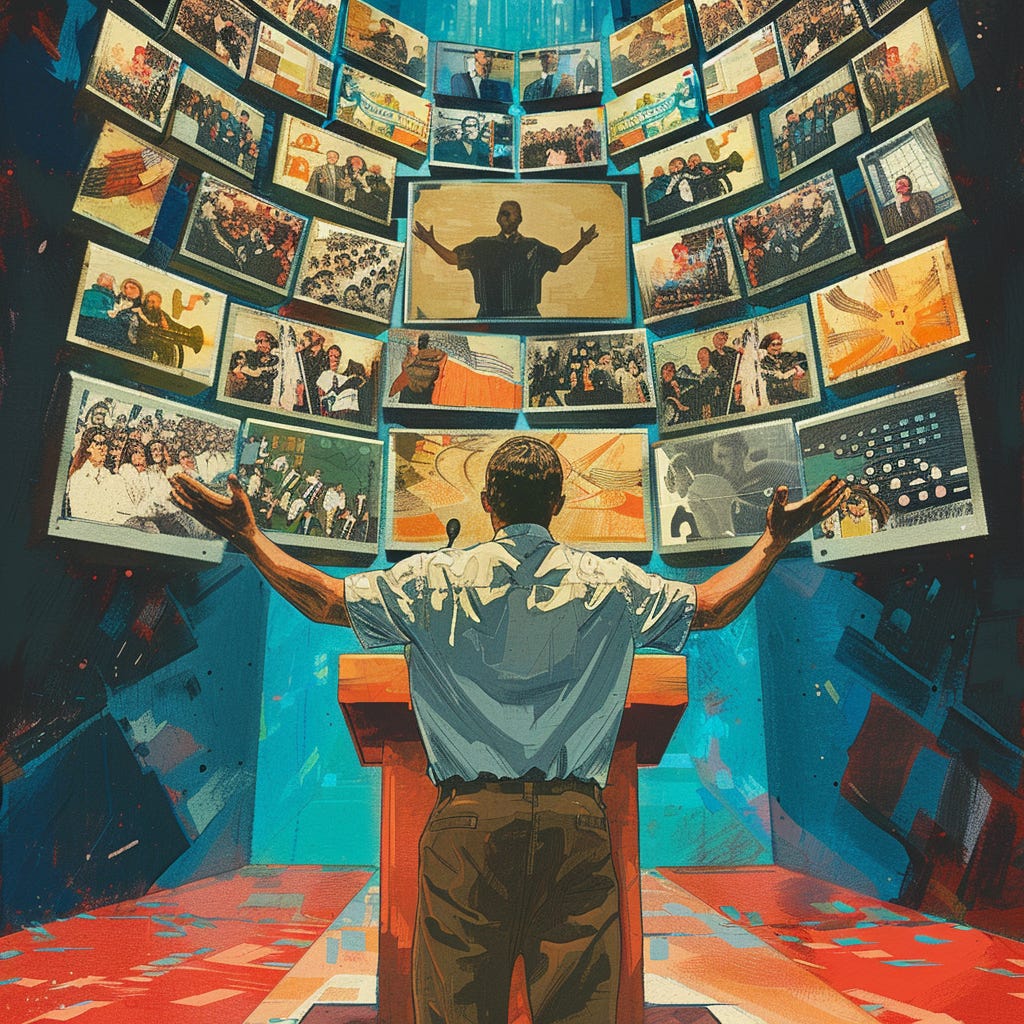Christian Celebrity Will Now Be AI-fueled, part 1
Today's tech disruption echoes the early social media era.
This post deals with my discovery of New Calvinism in 2010 and the way changing technology empowered Mark Driscoll and Mars Hill Church.
Part 2 focuses on eye-opening and unethical ways a ministry today could use AI.
Out of Catholicism and into Evangelical Celebrity Culture
Mars Hill mania was in full swing in the fall of 2010. That October I stepped out of my Catholic background and into the parallel universe of evangelicalism. I quickly found out I had a lot to get up to speed on.
There was the Bible, of course. Other than its most famous stories, the Good Book was mostly unfamiliar to me then. I was looking for a church home that would help me unlock more of Scripture, and I had the expectation that the born-again tribe could deliver.
One thing I didn’t foresee at my destination was how much enthusiasm would surround a small handful of famous pastors. Their names were unfamiliar to me when I arrived in my new church home. But their sermons, books, and digitally-curated personalities held massive influence. At that time no name came up as much as Mark Driscoll, pastor of Seattle’s Mars Hill Church. And it wasn’t close.
Disruptive Digital Discipleship
Mars Hill posted its first MP3 in 2000, around four years after the church’s founding. YouTube arrived in late 2005, and once again the ministry was an early adopter. By the time smartphones and Facebook exploded in popularity around 2007, the capabilities of the church’s digital team had more in common with a Seattle startup than a typical house of worship. And as the dust settled on the decade, Mark Driscoll was one of the most quoted pastors on the planet.
Technology had transformed the Christian media landscape. Suddenly an upstart ministry like Mars Hill could potentially reach as many people as Pat Robertson’s The 700 Club. And Driscoll’s influence on the Christian culture I stepped into—especially among young men—would have been hard to overstate.
AI Promises an Even Bigger Wave to Catch
With The Rise and Fall of Mars Hill podcast already several years old, isn’t reflection on peak-Driscoll getting a little stale? If looking back at the phenomenon serves an end in itself, I’d say yes. But applying lessons learned from that time to our strange, new moment could prove helpful. Maybe even necessary.
Today's explosion of AI tools carries echoes of the social media boom that lifted Driscoll to fame. Once again, new technologies are disrupting online media with consequences that are impossible to predict. Yet again, an early adopter could quickly build a large following, one completely out of proportion to their experience, knowledge, or (of course) character. Today a little-known ministry could gain influence even faster than was possible in the early 2000s. A magnetic personality could become more deeply enmeshed in the lives of followers than was ever before feasible.
In the second part of this post, I’ll share some startling examples of what AI now makes possible for a ministry. I’ll draw from my work experience using AI as a content creator for an education company (as well as my overheated imagination). And with confidence in a God who’s ultimately in control of all things, I’ll share some suggestions for believers navigating our uncertain times.




With all the comments about AI and modern church trends, all of which were issues I totally missed, (having been in rural Missouri as a carpenter/ handyman raising my 8 kids from 2001 to 2016.) I realize most of what I "missed" was useless prattle about issues I'd already found the answer for. None of those issues are, maybe, unimportant in themselves: but it seemed they were all posed by folks seeking an answer I'd already found. I'd become happy with myself, developed a strong marriage and, it turns out, raised mostly healthy kids. This seems to be what many were seeking an answer for.